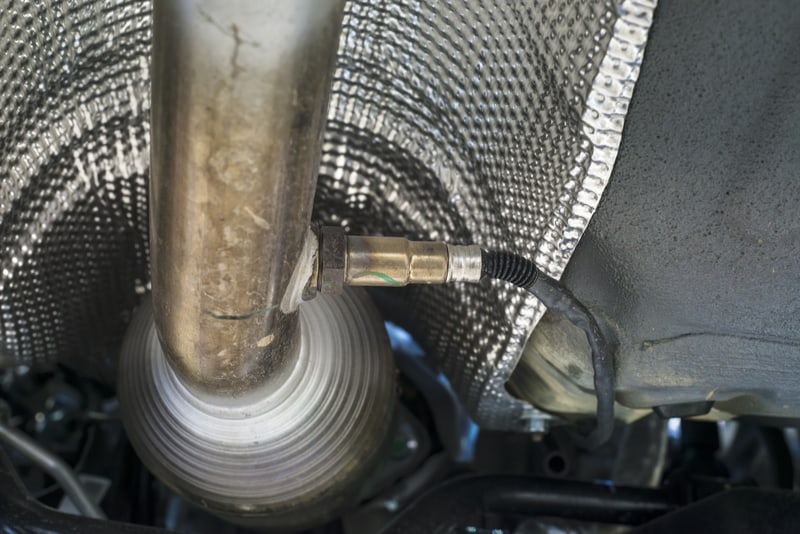“This post contains affiliate links, and I will be compensated if you make a purchase after clicking on my links.”
If you’re considering a career in welding, you’re probably wondering what welding skills will earn you the most money. If you’ve been welding for a while and want to learn TIG to increase your value on the job market, you want to know if there will be a return on your investment. Whatever your situation, learning TIG welding is a way to open up opportunities to make better than average income.
Do TIG Welders make good money? Similar to any other welding skill, the money you can earn as a TIG welder is dependent on a variety of factors such as years of experience and specialized skills, location and industry, and what you’re looking for in a work-life balance.
The great thing about TIG welding is that it gives you the opportunity to choose from more of the best options available to professional welders. Read on to learn what factors you should consider as you choose your career path and how to set reasonable expectations.
Here’s the Truth
Welding has always been a safe and stable career choice due to the high demand for skilled welders in multiple industries. Most experts agree that the future looks good for welders too. As many older welders get ready to retire, there will be a lot of opportunities for younger welders to step up and fill those openings.
There will always be fluctuations in the demand for welders in a given geographical region or a particular industry that correspond to cyclical changes in the economy. But the versatility of TIG welding ensures that you’ll have options to choose from if you need to adapt to changes in your situation.
With salaries ranging from just $25,000/year at the bottom end to multiple six-figure annual incomes at the other end of the spectrum, welding offers you the opportunity to make as much money as you choose to. Some of the most critical factors that will influence where you end up within that range are:
- Experience
- Location
- Entrepreneur vs. Employee
- What Works for You
Experience – Build a Resume That Works for You
No matter where you’re at in your career, adding TIG welding to your skill set will increase your value in the job market and expand the options you have available to you. Depending on what kind of experience you’re talking about, it can be either the quantity or the quality of experience you have that will mean the most to your earning potential.
Training
When you’re just starting, where you got your training and what kind of training you have can be crucial in determining if you find a job and how much it will pay. Many of the best welders working today got their training in technical schools or at community colleges. Either will provide you an affordable training program in the basic TIG welding skills you’ll need to get a job.
Many welding programs promise six-figure jobs will be waiting for you on graduation day. Unfortunately, many students only find out after they’ve taken on the significant tuition for these programs that only a select few students will get that kind of offer.
Quality training is an important part of your welding resume, but for many jobs, it won’t substitute for the quantity of experience that a few years working as a welder offers. It’s important to consider the return on your investment when weighing your options in training programs.
Years of Experience
For most people, the basic TIG welding skills that you’ll get in any training program will be enough to get you your first job. The job that you get might be on the lower end of the pay range for a professional welder, but at least you’ll be earning a living. More importantly, you’ll be building your resume.
It’s important to think strategically as you pursue opportunities within the company that gives you your first job, or take a look at other opportunities to learn and earn more. The choices you make will have a massive impact on where welding takes you, how quickly you get there, and how much you earn.
As we’ll discuss more throughout this article, the keys to unlocking top earning potential are getting the specialized skills that are in the most demand. If you can seize those opportunities within the company you’re with, you should jump at those chances. If you know where you want welding to take you and your current company can’t get you there—search for opportunities.
Certifications
To get the best jobs available to TIG welders, you’ll need to let employers know that you have both the knowledge and the skills to do the work that they need to be done. Basic training gets your foot in the door, and time in the trenches will hone your skills. Certifications are a great way to build a resume that lets employers know that you’re serious about getting ahead.
Many welding programs offer certificates of completion, but these are no substitute for AWS certifications in various competencies. Similarly, many companies or industries will have certification standards that might not travel with you when you leave a job. AWS certifications will give you an advantage in the job market.
Specialties
If you’re a skilled TIG welder, it makes sense to talk about TIG as a specialty within the welding profession, but that’s just the tip of the iceberg in terms of the specific skills that can add digits in front of the decimal on your paycheck. When you’re looking to add specialties, consider:
- Materials
- Industries
- Highly Specialized Skills
Materials: TIG is one of the most versatile welding technologies concerning the wide range of materials it can be used on. With that being said, some materials – such as aluminum – are more challenging than others (like mild steel). A diversified skill set is important to make sure you’ve always got work. Being good at a challenging material like aluminum will earn you more.
Industries: Specialized industries like aerospace, nuclear, and pipeline have exacting standards for the welding work that they require. If you build the skills that these industries require, the employers there will be happy to pay you more.
Highly Specialized Skills: Depending on where you’re at and what industry you work in, there are a lot of skills that will increase your value as a welder even if they’re not directly related to your skill as a welder.
If you’re working in the petrochemical industry, getting certified in confined space entry can give you a leg up in the job market as some of the projects in this industry will require you to be certified to work in those environments.
If you’re working in heavy construction or maritime industries, you should know that underwater welding is for TIG welders too. If you can work in an underwater welder’s habitat, you’ve got a skill that will set you apart from other TIG welders.
Location, Location, Location!
The part of the country you live in is a major determinant of how much you can earn as a TIG welder. Your location will influence your lifetime earnings due to the laws of supply and demand. Some areas have more welders and less industry demand, while others have a shortage of skilled welders and more demand than they know what to do with.
Choosing to relocate in search of opportunity, or deciding that you’re willing to travel and work as a road warrior are major life decisions. They can make a big difference in your earning potential, but they also make huge demands on your personal life.
Demand
As the chart below demonstrates, where you’re located can make a big difference in how much you can make as a welder. It also reinforces the importance of training, skills, and experience that separate the top 10% of welders from the rest of the pack. Even in the ten U.S. states that offer the highest wages for welders, there’s a lot of variation.
Before you pack your bags and take off for Alaska or Hawaii, it’s important to remember that demand in a particular location is only part of the story that you need to know before you make a major decision.
For example, in Alaska, there has been a lot more work for welders than there have been welders to do it. But the vast majority of that work is in the oil and gas industry. Any sudden changes in the overall health of that industry could result in major changes in the demand for welders in Alaska.
Something else to consider is that while both Alaska and Hawaii offer better than average wages, they also rank at or near the top of the cost of living charts. You’ll earn more as an experienced welder in those areas, but will it be enough to offset what you pay to keep a home?
Industry
Another piece of the puzzle when it comes to making decisions about location is the kinds of industries that are most common in different areas of the country. Some industries will require a willingness to travel if you want to earn top dollar. Others will keep you in one place but require you to come to them if that’s the work you want.
Some industries worth looking into if you want access to the best-paying jobs available to TIG welders are:
- Aerospace and Nuclear Industries: There are a lot of great companies to work for within these industries, and they’re spread throughout the country. These jobs typically offer a set schedule and predictable work environment. But, to get these jobs, you’ll have to be located within a commutable distance of their facilities.
- Oil and Gas Industry: From pipelining to drilling rig repair in remote locations to facilitate fabrication and parts supply in job shops, the oil and gas industry has been full of opportunities for skilled welders. The vast majority of these jobs are located in industry hot spots like Alaska, Texas, North Dakota, and the Ohio River Basin.
- Construction: While this industry keeps welders busy nationwide and year-round, much of the work is either seasonal or subject to the timetable of large projects like stadiums, skyscrapers, and highway bridges. Union membership is the key to accessing these opportunities.
- Maritime: Obviously, being located near an ocean, the Gulf of Mexico, the Great Lakes, or a major river like the Mississippi is going to be an important factor in determining the amount of work available to you in this industry.
- Defense: There is currently a lot of work for welders in defense-related projects. Some of these might happen to be going on in your area. Others might be work relocating for. Finally, others will require a willingness to travel.
Travel
There is probably no single factor related to location than your willingness to travel in determining how much you can earn as a TIG welder. It will come into play no matter what industry you work in or what part of the country you’re in.
If you are a union welder who works on structural ironwork, you’ll need to be willing to travel when a big project gets started someplace far from home, and the local union puts out a call for help.
If you’re going to specialize in pipelining work, then you’ll have to travel with the project as it progresses from beginning to end.
If you want to earn top dollar welding on defense industry projects or to serve the maritime industry, it will require that you be willing to go to where the work is just as much as it will require that you have the skills those employers need.
Be Your Own Boss?
One of the great things about being a skilled TIG welder is that you always have the opportunity to put your skills to work for you. This can take a lot of different shapes, depending on your situation. Ultimately, you’ll have to decide what the right mix of risks and rewards is for you.
If you enjoy the security of an hourly or salaried position but want to make a little bit more money, you can always take side jobs or put in some time making things to sell through a side business. All it takes is some workspace in your garage or a small shop and the basic welder and tools to do simple jobs.
If you’re willing to trade some of the security of a full-time job doing work for somebody else to get the freedom of being your own boss, that’s always an option. The more time that you’ve put into developing your skills as a welder, the more work you’ll be able to pursue confidently. That same experience will also help you build a reputation that will have customers coming to you.
Maybe the best thing about being a skilled TIG welder is that it can be the dream you chase and your fallback option at the same time. There are risks involved in starting your own business, but your skills as a welder will mean that you can always find work if things don’t work out.
Before You Hang Your Shingle
Depending on the industry you want to work in, getting clients as a new business can be a big challenge. You should carefully consider just how far the reputation you’ve built will carry you before you strike out on your own.
In some industries, the overtime pay you draw by working consistently and putting in the time will get you farther ahead in the long run than striking out on your own and struggling to find work.
Beyond that, make sure to consider the value of benefits and retirement plans that your employer offers and what it will cost you from your job profits to replace the benefits you give up to be your own boss.
When starting any business, it’s essential, to begin with, a solid business plan and spend the time it takes to make an informed decision.
It Depends on What Works for You
At the end of the day, how much money you can make TIG welding is going to be determined by what you are or are not willing to do to get jobs that pay more. For one person, traveling around the world is a fringe benefit of their career as a welder. For someone else, it is a huge sacrifice and something they’ll only do for a short time if they’re willing to do it at all.
TIG welding is a skill that can keep you earning a comfortable living for a lifetime. As you get older, you can take your skills to different jobs that will take less of a toll on your body. But you’ll only have the opportunity to get better over time if you choose the roles within the profession that you’ll enjoy enough to stick with.
The most important thing to making good money as a TIG welder is to take the long-view and build toward a goal that is right for you. There are a lot of factors to consider, like special skills to pursue, relocation, or travel, and whether you want to be your own boss or work for someone else.
If earning what the top 10% or even top 1% of TIG welders earn is what drives you, then the only thing standing between you and your dream is time under the hood and a willingness to learn and challenge yourself continually. If you never let yourself get comfortable or complacent and do whatever it takes, you’ll eventually get there.
Career Paths
Everything we’ve discussed to this point has assumed that you’re trying to max out your earning potential while spending all of your time under the hood. For some folks, that’s the only option that will work for them. For others, that’s just a great place to start, and they’ll want to consider where they can go from there.
Even if you want to follow a career path that takes the torch out of your hand, what you know and where you’re willing to go will factor into how much you can make. As will your willingness to work long hours on somebody else’s schedule or take the risks associated with going into business for yourself.
AWS Certifications are available in six different areas that will help you increase your earning potential as a TIG welder:
- Certified Weld Inspector: The average annual salary for a Certified Weld Inspector is $60,682.00/year
- Certified Welding Educator: The annual average wage for a Certified Welding Educator is $59,000.00/year.
- Certified Welding Supervisor: The average annual salary for a Certified Welding Supervisor is $69,000.00/year.
- Certified Radiographic Interpreter: The average annual salary for a Certified Radiographic Interpreter is $127,000.00/year.
- Certified Welding Sales Representative: With commissions, these positions regularly offer six-figure incomes.
- Certified Welding Engineer: The average annual salary for a Certified Welding Engineer is $78,000.00/year.
To Earn Your Next Raise – Start Where You’re At
If you just graduated from the vocational track at your high school and you’ve got a job making $15 or $18/hour at a local job shop, you should focus on your next raise instead of looking for ways to get to $120k/year in a single move.
Build a solid foundation of basic skills. Practice and perfect your craft as a TIG welder. Do the little things right every time and take on new skills one-at-a-time in an order that makes sense.
If you try to go from TIG welding mild steel all day long to work with a soda can thickness of aluminum all at once, you’ll end up frustrated. You’ll also be wasting time that you could spend developing the skills it will take to get to that ultimate goal.
If you want to work on the pipelines and make the big bucks, consider applying to work as a welder’s helper to get your foot in the door. Be flexible and creative as you look for solutions that will move you from where you’re at to where you want to be. Even if an opportunity means a pay-cut, it might be the right move in the long-run.
Network
This is an integral part of building a career in any industry. It doesn’t matter if you paint houses, paint murals, or stick-weld pipe—developing a professional network will open up doors that your resume never could. Get to know the people in your area who are getting the jobs you wish you could. Don’t make the mistake of trying to compete with the folks who could be your mentors.
Use the Internet to Your Advantage
If you’re trying to increase your earning potential as a TIG welder there are at least three important ways that the internet can help you out:
- Job Search: Use the internet to find opportunities that align with your career goals and do other important research on salaries, skills training, and more.
- Chat Rooms: One of the best ways to become more experienced than your years on the job is to take advantage of other people’s experiences. There are a lot of great chat rooms where welders with decades of experience give each other helpful tips and useful advice.
- Social Media: If you use them strategically, platforms like Facebook, Instagram, and Twitter can be great ways to build your reputation and get world-wide visibility with audiences that are specifically interested in the same things you are.
To Sum It All Up
It’s certainly true that there are TIG welders out there who are making $200,000.00/year or better. It’s also probably true very few of us will ever meet them personally, much less become one of them.
With that in mind, it’s more important to focus on setting reasonable expectations and making a plan that will allow you to manage a work-life balance now and in the future. The difference between $75,000/year and $100,000/year might not mean as much as what you have to sacrifice to get from one to the other. Or, it might be nothing but upside – it depends on you.
If you start where you are and focus on doing things the right way and building your value, then people will offer you more money in return for the amount you’ve created. If you chase a significant number just for the sake of bragging rights, you’ll probably be losing focus on the very things that will earn you more money over your lifetime.
Welding is an essential skill in today’s economy, and it will be for the foreseeable future. It can be an excellent way for you to provide a stable living for your family. It can also offer you fantastic opportunities to travel and work on amazing projects.
It’s essential to earn a living—but at the end of the day, it’s critical to enjoy the life that being a skilled worker can provide for you.




